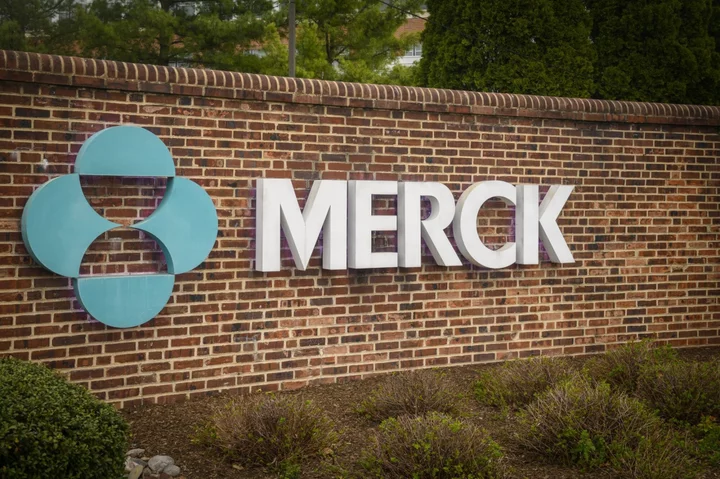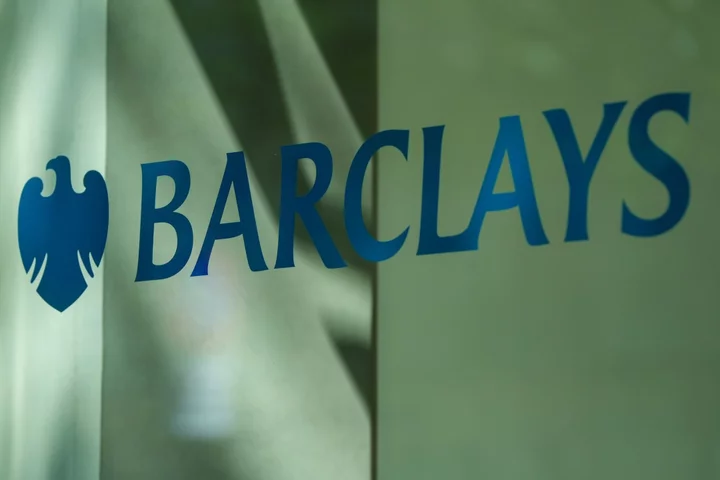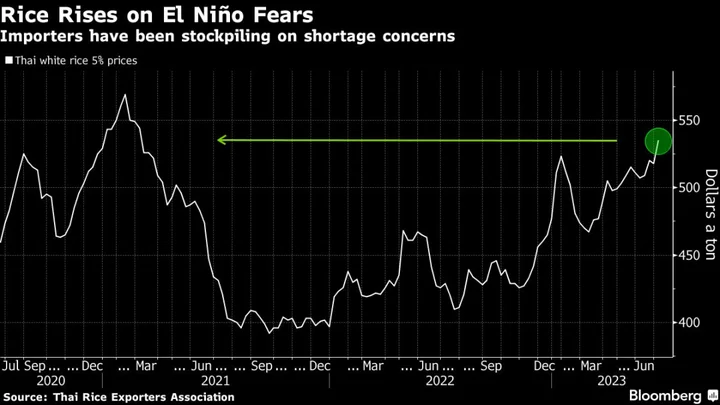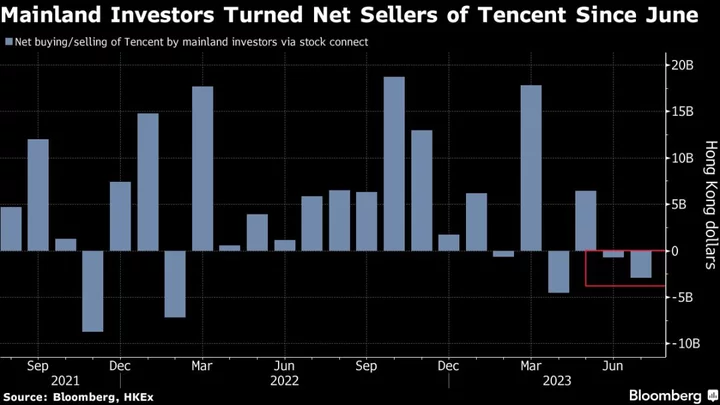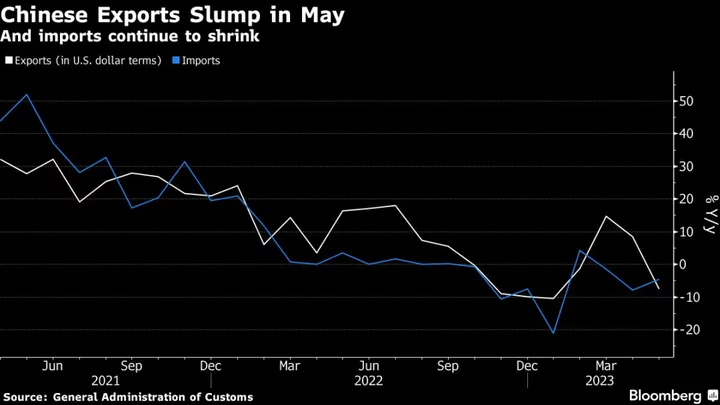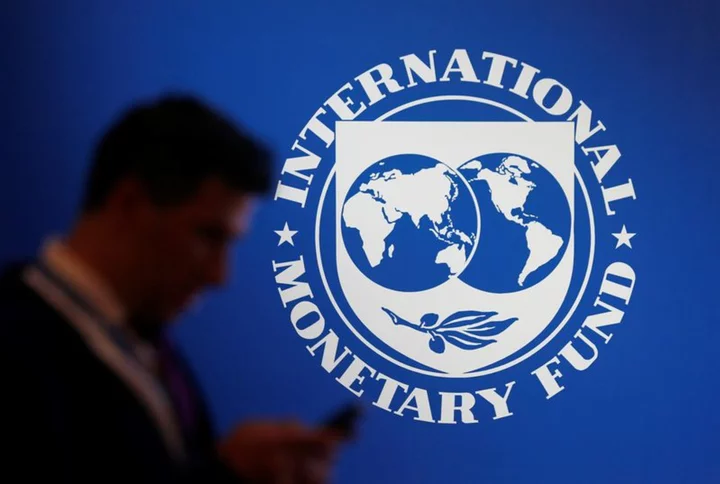Merck & Co.’s Keytruda and Gardasil soundly beat analysts’ estimates for quarterly sales, driving the company’s annual revenue forecast higher even as costs for its acquisition of Prometheus Biosciences Inc. led to an earnings outlook cut.
Second-quarter sales of the blockbuster cancer drug Keytruda rose 19% from a year earlier to $6.27 billion, Merck said Tuesday in a statement, compared with analysts’ expectations of $5.8 billion. Gardasil, a shot that prevents HPV, saw a 47% increase in quarterly sales, primarily due to increased demand in China. The drugmaker raised its full-year sales guidance to $58.6 billion to $59.6 billion from the earlier range that topped out at $58.9 billion.
The shares gained 2.4% in trading before US markets opened. They had lost 3.9% this year through Monday’s close.
Merck has profited from widespread use of Keytruda, which has been consistently gaining use in a variety of cancers since it reached the US market nine years ago. Company scientists have been working to develop a self-administered version of the drug that would make it easier for patients to use, while potentially extending its patent life.
Merck bought Prometheus, a developer of drugs for autoimmune diseases, as part of its efforts to replenish its pipeline of new drugs before Keytruda loses its market exclusivity. Prometheus’s leading clinical candidate, a treatment for ulcerative colitis, will enter a late-stage trial in the fourth quarter, a Merck spokesperson said in an interview. The study had previously been set to start either late this year or early next year.
Merck also applied for US approval of sotatercept, a treatment for pulmonary arterial hypertension, according to the statement. The product is expected to eventually help counteract Keytruda’s patent cliff.
Merck said in June that it would take a charge of $4 a share for the Prometheus purchase, writing off the research and development acquired according to accounting rules. On Tuesday, the company cut its annual forecast for earnings excluding some items to a range of $2.95 to $3.05 a share, less than half its earlier prediction of $6.88 to $7.
The company posted a quarterly loss excluding some items of $2.06 a share — also because of the costs of Prometheus. That was narrower than the $2.20 loss expected by Wall Street.
Second-quarter revenue reached $15 billion, outpacing analysts’ average expectation of $14.5 billion. Gardasil sales of $2.46 billion beat estimates of $1.98 billion.
(Updates with premarket trading in third paragraph)

